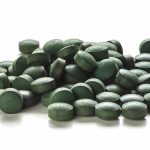As we age, the importance of diet becomes even more pronounced, impacting our overall health and stroke risk. Seniors over 65 can benefit significantly from smart eating strategies. Simple dietary changes can enhance cardiovascular health and reduce the likelihood of strokes. This article explores practical and effective nutritional choices, empowering seniors to make informed decisions for a healthier lifestyle. Discover how small adjustments in your meals can lead to lasting benefits for your well-being.
Understanding Stroke Risk Factors for Seniors
As we age, understanding stroke risk factors becomes crucial, particularly for seniors. These factors can be numerous and complex, including high blood pressure, diabetes, and atrial fibrillation. Among these, seniors' health is significantly influenced by lifestyle choices, with diet playing a pivotal role.
Also to read : Unlocking Creativity: How Digital Painting Classes Can Boost Mental Well-being in Seniors
Dietary Influence on Stroke Prevention
A balanced diet can substantially reduce stroke risk. For seniors, incorporating more fruits, vegetables, and whole grains while reducing salt and saturated fats is recommended. Such dietary changes can help manage blood pressure and cholesterol levels, both critical in stroke prevention.
Personalized Dietary Strategies
Each senior's health profile is unique, necessitating personalized dietary strategies. Consulting with healthcare professionals to tailor diets based on individual health conditions can optimize stroke prevention efforts. This personalized approach ensures that seniors receive adequate nutrients while minimizing risk factors.
Also to read : Top Yoga Poses Tailored for Seniors: Alleviating Lower Back Pain with Gentle Movements
In conclusion, understanding and addressing stroke risk factors through tailored dietary strategies is essential for maintaining seniors' health. By focusing on these aspects, seniors can significantly reduce their risk of stroke and improve their overall quality of life.
Essential Foods to Include in a Stroke-Preventive Diet
When focusing on stroke prevention through nutrition, understanding which foods to include is vital. Certain healthy foods for seniors are particularly beneficial, offering key nutrients that support brain health and reduce stroke risk.
Key Nutrients for Brain Health
Nutrients such as omega-3 fatty acids, antioxidants, and fibre play a significant role in maintaining brain health. Omega-3s, commonly found in fatty fish like salmon and mackerel, are essential for reducing inflammation and improving blood flow. Antioxidants, abundant in berries, help combat oxidative stress, a contributor to stroke risk.
Recommended Food Groups
Including a variety of food groups is crucial for a balanced diet. Seniors should focus on:
- Fruits and Vegetables: Rich in vitamins and antioxidants, they support overall health. Berries, in particular, are linked to improved cognitive function.
- Whole Grains: Foods like oats and brown rice provide fibre, which aids in maintaining healthy cholesterol levels.
- Lean Proteins: Sources such as chicken, turkey, and legumes offer essential amino acids without excessive saturated fats.
Specific Foods Linked to Reduced Stroke Risk
Incorporating specific foods like nuts, seeds, and leafy greens can further enhance a stroke-preventive diet. These foods are packed with nutrients that support vascular health and reduce the likelihood of stroke occurrences.
Foods to Avoid for Better Heart Health
Understanding which foods to avoid is just as crucial as knowing what to include in a diet aimed at reducing stroke risk. Certain foods can negatively impact heart health, increasing the likelihood of stroke, especially among seniors.
Foods High in Saturated Fats and Trans Fats
Consuming foods rich in saturated fats and trans fats can elevate cholesterol levels, a significant risk factor for stroke. These fats are commonly found in processed snacks, fried foods, and certain baked goods. Limiting intake of these items is essential for maintaining healthy cholesterol levels and supporting cardiovascular health.
The Impact of Excessive Sodium and Sugar Intake
Excessive sodium intake can lead to high blood pressure, a leading cause of stroke. Processed foods, canned soups, and fast foods often contain high sodium levels. Similarly, too much sugar can contribute to obesity and diabetes, further increasing stroke risk. Reducing these elements in the diet is crucial for heart health.
Processed Foods and Stroke Risk
Processed foods often contain unhealthy levels of fats, sodium, and sugars, making them a significant contributor to increased stroke risk. Opting for fresh, whole foods over processed options can help manage these risk factors effectively, promoting better heart health and reducing stroke occurrences.
Meal Planning Tips for Seniors
Meal planning for seniors is essential to ensure consistent healthy eating habits. By incorporating practical tips, seniors can simplify their meal preparation and maintain a balanced diet.
Simple Strategies for Balanced Meal Preparation
Creating a balanced meal doesn't have to be complicated. Start by focusing on the major food groups: proteins, carbohydrates, and vegetables. Aim for a colourful plate, as this often indicates a variety of nutrients. Use herbs and spices to enhance flavour without adding unhealthy fats or sodium.
Creating a Weekly Meal Plan
Crafting a weekly meal plan helps incorporate stroke-preventive foods regularly. Begin by listing meals for each day, ensuring a mix of proteins, whole grains, and vegetables. Consider batch cooking, which saves time and ensures you have healthy options readily available. Rotate different recipes to keep meals exciting.
Tips for Shopping Smart and Making Healthy Choices
When grocery shopping, stick to the perimeter of the store where fresh produce, meats, and dairy are typically located. Read labels carefully to avoid processed foods high in sodium and unhealthy fats. Opt for seasonal fruits and vegetables, which are often more affordable and nutritious. Planning your shopping list around your meal plan can prevent impulse buys and ensure you have all necessary ingredients.
Hydration and Its Role in Stroke Prevention
Maintaining proper hydration levels is crucial for seniors in the context of stroke prevention. Adequate fluid intake supports overall health by ensuring that bodily functions operate smoothly, which is particularly important for seniors whose bodies may not signal thirst as effectively.
Importance of Hydration for Seniors
Hydration for seniors is essential as it helps regulate body temperature, maintain joint health, and support cardiovascular functions. Dehydration can lead to confusion, dizziness, and increased risk of falls, all of which can indirectly elevate stroke risk.
Recommended Daily Water Intake
For effective stroke prevention, seniors should aim for a daily water intake of at least 1.5 to 2 litres. This amount may vary based on individual health conditions, climate, and activity levels. Consulting with healthcare providers can help tailor fluid recommendations to personal needs.
Hydrating Food Options and Beverages
Incorporating hydrating foods and beverages can aid in meeting daily fluid requirements. Foods like cucumbers, watermelon, and oranges are high in water content and offer additional nutrients. Herbal teas and broths are also excellent choices, providing warmth and hydration without added sugars or caffeine.
Supplements and Physical Activity Considerations
In the quest for stroke risk reduction, supplements for seniors can play a supportive role alongside a balanced diet and regular exercise. Certain supplements, such as omega-3 fatty acids and vitamins, have been shown to contribute to cardiovascular health. Omega-3s, in particular, are renowned for their anti-inflammatory properties and ability to improve blood flow, thus potentially lowering stroke risk.
The Role of Physical Activity
Physical activity complements dietary changes and supplements in promoting overall well-being. Engaging in regular exercise helps maintain a healthy weight, reduces blood pressure, and improves heart health, which are crucial factors in stroke prevention. Seniors should aim for a mix of aerobic, strength, and flexibility exercises to achieve optimal benefits.
Recommended Types of Exercises
For seniors, incorporating activities like walking, swimming, or cycling can be beneficial. These exercises are gentle on the joints while effectively enhancing cardiovascular health. Strength training, using light weights or resistance bands, helps preserve muscle mass and bone density. Flexibility exercises, such as yoga or tai chi, improve balance and coordination, reducing the risk of falls. By integrating these elements, seniors can bolster their health and reduce stroke risk.











